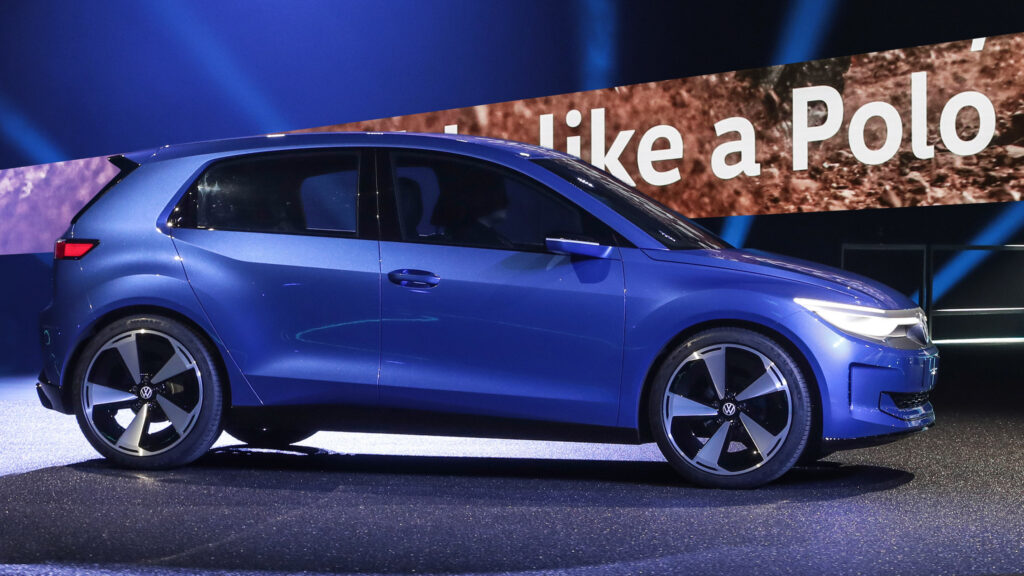
- The sweeping job cuts are being made through early retirement and severance packages.
- VW wants to lower its German production capacity by 734,000 to better align with demand.
- Board members will also have their salaries and annual bonuses slashed in the coming years.
Six months ago, Volkswagen announced that it would cut more than 35,000 jobs across Germany by 2030. While that sounded like an audacious task when first announced, it’s been revealed that 20,000 employees have already agreed to leave the automaker voluntarily. It would seem as though many employees are eager to pack up their things, perhaps fearing they could be stuck on a sinking ship if they don’t leave.
var adpushup = window.adpushup = window.adpushup || {que:[]};
adpushup.que.push(function() {
if (adpushup.config.platform !== “DESKTOP”){
adpushup.triggerAd(“0f7e3106-c4d6-4db4-8135-c508879a76f8”);
} else {
adpushup.triggerAd(“82503191-e1d1-435a-874f-9c78a2a54a2f”);
}
});
While speaking during a recent company meeting at VW’s headquarters in Wolfsburg, chief human resources officer Gunnar Kilian confirmed that “around” 20,000 departures have “already been contractually agreed.” Importantly, these employees are not being made redundant, and instead, the job cuts are being made through early retirement and severance packages.
Read: VW Confirms More Than 35,000 Job Cuts In Germany, Golf Production Moving To Mexico
“The first measures of the ‘Future Volkswagen’ agreement are taking effect, and we are on track,” Kilian added, reports Handelsblatt. “With measurable progress in factory costs in Wolfsburg and the socially acceptable job cuts at Volkswagen AG’s six German locations alone, we are accelerating our transformation.”
But VW’s work is far from over. The automaker is looking to lower its German production capacity by 734,000 units to better align with current demand. It’s doing this by making several alterations at multiple plants. The current Emden site will continue to build the ID.4 and ID.7, but the Osnabruck factory will stop producing the T-Roc Cabriolet in mid-2027.
In addition, VW plans to stop building the ID.3 at its Dresden factory and likely shift this site to some kind of “third-party scheme.”

VW chief financial officer David Powels acknowledged there’s still plenty of work ahead for the company if it wants to become competitive and sustainable by 2029.
It’s not just lower-level workers who will feel the impacts. Recent reports suggest that VW board members will have their salaries and annual bonuses cut by 11% in 2025 and 2026, followed by an 8.5% cut in 2027, a 6.5% cut in 2028, and a 5.5% cut in 2029. These measures could save the brand approximately €15 million (~$16.2 million).
var adpushup = window.adpushup = window.adpushup || {que:[]};
adpushup.que.push(function() {
if (adpushup.config.platform !== “DESKTOP”){
adpushup.triggerAd(“bb7964e9-07de-4b06-a83e-ead35079d53c”);
} else {
adpushup.triggerAd(“9b1169d9-7a89-4971-a77f-1397f7588751”);
}
});

var adpushup = window.adpushup = window.adpushup || {que:[]};
adpushup.que.push(function() {
if (adpushup.config.platform !== “DESKTOP”){
adpushup.triggerAd(“bb7964e9-07de-4b06-a83e-ead35079d53c”);
} else {
adpushup.triggerAd(“9b1169d9-7a89-4971-a77f-1397f7588751”);
}
});

